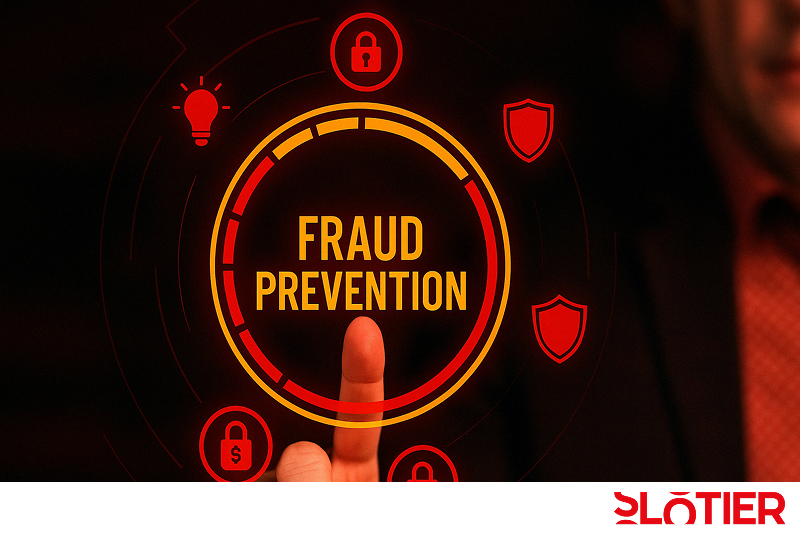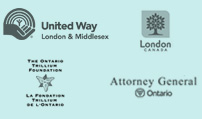Financial Safety and Protection from Online Risks for People in Inclusive Environments

In today's world, the internet has become an integral part of daily life — from communication and shopping to education and entertainment. People with disabilities, including those with intellectual, cognitive or sensory impairments, are increasingly embracing the digital space. This is undoubtedly a positive trend that expands the horizons of self-realisation, access to information and inclusion in society. However, along with opportunities come risks, especially in terms of financial security and trust in online content.
Vulnerability in the digital environment: why adapted protection is important
People with developmental disabilities may find it more difficult to critically assess online information and may not always be able to distinguish between trustworthy and fraudulent content. This applies not only to sites with fake news or malware, but also to more subtle traps such as fake giveaways, fraudulent online stores, unauthorized subscriptions, as well as dubious online gambling platforms.
It is important to realise: digital vulnerability is not the result of limited capabilities, but rather a lack of adapted tools and support systems to help make informed decisions online.
Common online risks: from trivial to specialised scams
Among the most common threats:
- Phishing emails and sites that mimic official services.
- Sites with paid access, where information about debiting is hidden or unclear.
- Gaming and gambling platforms operating without a licence and inbuilt restrictions.
- Fraudulent schemes offering ‘quick earnings’, ‘gifts’ or ‘exclusive promotions’.
Of particular concern are cases where a person with a perceptual or attention deficit disorder does not realise that they are entering personal data on an unreliable resource or making a payment.
Financial literacy as the foundation of digital security
Financial behaviour on the internet should be shaped with the user's cognitive characteristics in mind. Simple visual language, step-by-step explanations, consolidation of skills through repetition - all this helps a person to learn:
- Distinguish between paid and free services.
- Understand the terms of ‘bonuses’ and ‘promotions’.
- Recognise when it's appropriate to seek help from a mentor or parent.
For this purpose, it is important to have regular lessons oriented not so much on theory as on real-life scenarios: registering in an online shop, using a bank card, installing applications, clicking on links from social networks, etc.
Responsible online behaviour: the role of family and mentors
One of the most effective ways to mitigate online risks is through guidance and support from family members, educators, or social workers. This is not about total control, but about creating an environment in which the person with a disability feels safe, knows that they can get support and understands the basic rules of internet etiquette.
Useful tools can be:
- Parental filters and restricted access apps.
- Discussing news and events on the internet with a focus on critical thinking.
- Practising ‘situation analysis’ - what to do if you are asked to enter a card number, if you receive a suspicious letter or a website with aggressive advertising.
Online gambling: an area of increased attention
.png)
The online entertainment industry, including online casinos, deserves special consideration. Even though many platforms operate legally, this area still requires caution and oversight. For a user with impaired comprehension, abstract thinking or impulse control, the gaming interface may be perceived as a harmless game that does not involve real spending.
At the same time, examples of platforms that comply with international standards and implement mechanisms to protect vulnerable users are emerging in the industry. Among such platforms is online casino Slotier - a service operating in a jurisdiction with regulated licences, where a system of self-restrictions, deposit limits and transparent conditions for the use of bonuses is implemented (for example, on Slotier.com bonus offers and promotions are only available to verified users of legal age, in accordance with the platform’s responsible gaming policy).
It is important to emphasise that Slotier is not positioned as a service for vulnerable users, but the presence of inbuilt monitoring tools can serve as a positive example when it comes to distinguishing a responsible resource from a fraudulent one.
However, even with these features in place - access to such platforms should be limited and supervised, especially when dealing with people with special educational needs. It is important for families and mentors to monitor not only the sites visited, but also the overall digital behaviour of the individual and help shape informed habits.
Digital hygiene training: methods that work in practice
For people with intellectual disabilities, abstract concepts like ‘financial trap’ or ‘fraud’ may not be sufficiently clear. Therefore, it is better to use concrete and visualised examples in training. Suitable techniques include:
- Infocards and infographics with step-by-step actions (‘If you see a “Confirm Payment” button, stop and ask’).
- Game scenarios that simulate situations (e.g. a virtual shop or entering a platform with paid access).
- Visual risk scales from ‘green’ (safe) to ‘red’ (dangerous, requires adult intervention).
Regular repetition and reinforcement through dialogue and real-life situations – for example, checking websites together, reading bonus conditions, comparing the design of official and fake resources.
Conclusion
The digital environment will continue to evolve, becoming increasingly complex and rich. People with disabilities need not only access to these resources, but also tools that promote understanding and self-protection. Building digital and financial literacy, fostering critical thinking, and ensuring access to responsible practices in the industry (including examples such as Slotier) all contribute to a safer and more inclusive digital space.
Organisations, families and professionals working with people with special needs play a key role here - not only as a filter and protector, but also as mentors, teaching how to use digital opportunities wisely and confidently.



